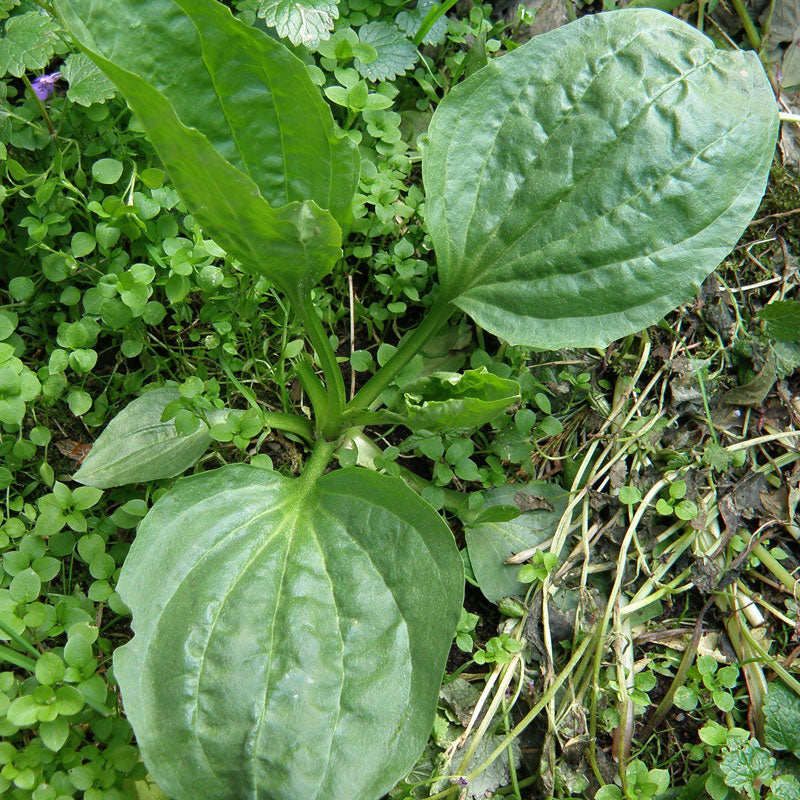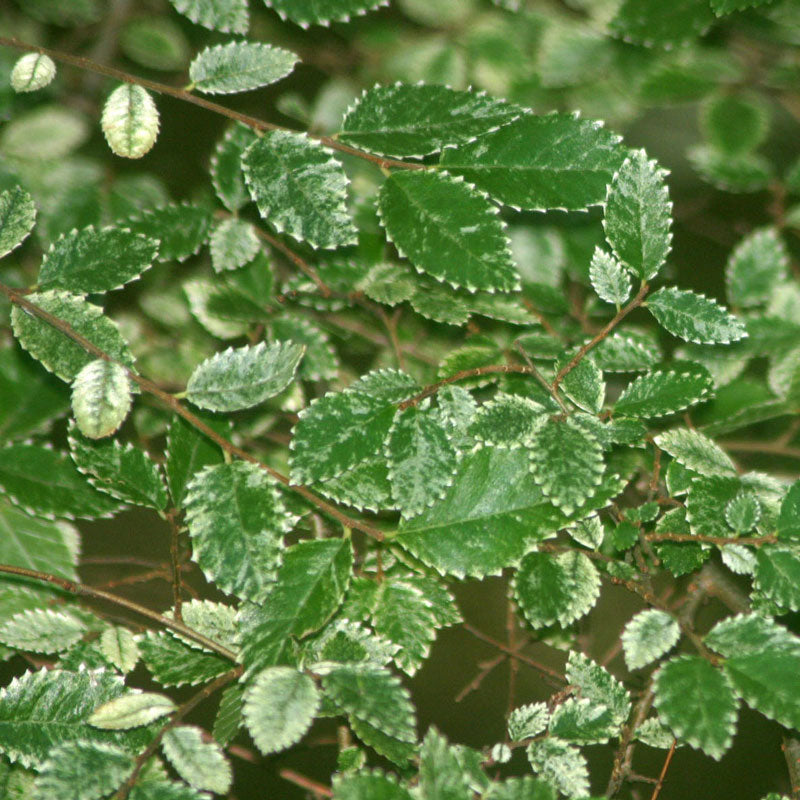

Plantain (Plantago major)
- $14.00 CAD
- $14.00 CAD
- Unit price
- per
50g, 100g, 250g
Couldn't load pickup availability
Parts used: Leaves and seeds
Properties
Alterative, anti-inflammatory, antiseptic, antispasmodic, antivenomous, astringent, blood purifier, demulcent, diuretic, emollient, expectorant, febrifuge, mucilant, parasiticide, purgative (gentle), vulnerary
Primary nutrients
Calcium, potassium, sulfur, trace minerals, vitamins C, K and T
Plantain is one of the most commonly used plants in the world. Plantain seeds are related to psyllium seeds and are often used for the same purposes.
Plantain is most known for its gastric benefits. It neutralizes stomach acids and normalizes stomach secretions. Fresh plantain juice has been used to treat mild stomach ulcers. It helps absorb toxins from the bowels and promotes normal bowel function. It is a bulk laxative and, when mixed with water, increases in mass. Studies have confirmed the value of plantain as a mild laxative. In subjects tested, plantain decreased intestinal transit time.
In addition to its intestinal uses, plantain can help with bladder infections and kidney problems, as well as bed-wetting in children.
As an expectorant, plantain ingested in tea clears the head and ears of congestion. The tea is also a beneficial treatment for chronic lung problems in children.
The herb is known for its ability to neutralize poisons in the body. In addition, the leaves, when applied to a bleeding surface, can stop hemorrhaging. The astringent properties in plantain help stop bleeding and promote healing in wounds.
As an anti-inflammatory, plantain can help with problems such as edema and hemorrhoids. Other conditions plantain has been used for include nerve problems, fevers, burns, eye pain and jaundice.
Primary Applications
Bed-wetting
Bites, snake
Cystitis
Diarrhea
Intestinal problems
Kidney problems
Lung disorders, chronic
Neuralgia
Poisoning, blood
Poison ivy
Sores
Ulcers
Urinary incontinence
Wounds
Secondary Applications
Bites, insect
Bronchitis
Burns
Cholesterol, high
Colitis
Coughs
Cuts
Dysentery
Edema
Epilepsy
Eyes, sore
Fevers
Gas
Hemorrhages, external
Hemorrhoids
Infections
Jaundice
Leucorrhea
Menstruation, excessive
Respiratory problems
Tuberculosis, primary
Skin conditions
Stings
50g, 100g, 250g
RELATED PRODUCTS
- Choosing a selection results in a full page refresh.



